Public lands have some of the most beautiful views in the world. But when it comes to living on them, there’s no access to the basic amenities most people take for granted living at home.
Full-time campers who want to immerse themselves in the thousands of acres of natural beauty have learned how to do off-grid camping.
Many of them love this new way of living and will never turn back.
The chances are good that if you want to live on public lands, you’re looking into boondocking.
While these areas are incredibly scenic, you’re on your own when it comes to finding an energy source or water supply.
If you want to spend some time living in nature while RVing, there are several things you need to figure out beforehand.
Here’s a breakdown of how to make sure your basic needs are taken care of, while still living in some of the most beautiful places on the planet.
Table of Contents
What You Need to Live Off The Grid
While there are many things you can do without when living in a travel trailer or a motorhome, you’ll still need to find a way to take care of your basic needs.
Power generation, safe water, and communication are vital no matter what location you end up visiting.
Alternative Electricity Generation
Almost everything in your RV requires power.
Your oven, air conditioning, lights, to name a few, need a power source before they start working. Obviously.
While some prefer connecting them to 12-volt battery systems or propane gas tanks, solar and wind power is becoming more commonplace in RVs than such traditional hookups.
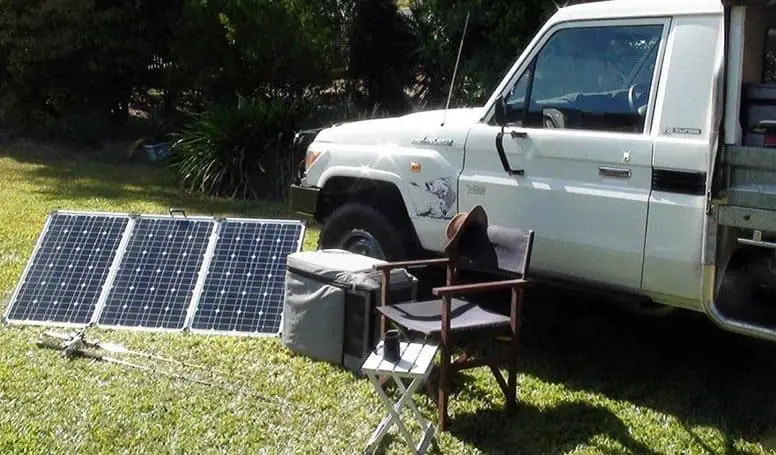
Before you can know what kind of electrical system to set up, you’ll need to know how much energy your RV uses on a daily basis.
Here’s a brief way to calculate your energy needs.
- Figure out what devices you’ll use, how long you’ll use them, and how much power each one uses
- Decide how long you want to go without recharging
- Pick how much you’ll let the batteries be discharged
There are a couple of ways to charge your battery array.
One of them is to plug it into your van and let it charge while you’re driving. Another is to find an energy generating solution, such as a solar panel setup or wind turbine array.
If you choose solar power over the other options, you’ll have to check if your RV is prewired for an inverter. Also, bear in mind that lithium batteries are the best way to store solar power in off-grid RVs.
You don’t have an RV yet, but you want to boondock, and you are in the market for an RV with the power system most suitable for off-grid living?
Then I’d recommend you take a look at Winnebago Revel. It has a state-of-the-art lithium-ion battery bank with an amazing solar charger, enough to run your air conditioner, cooktop, and refrigerator.
Water Source
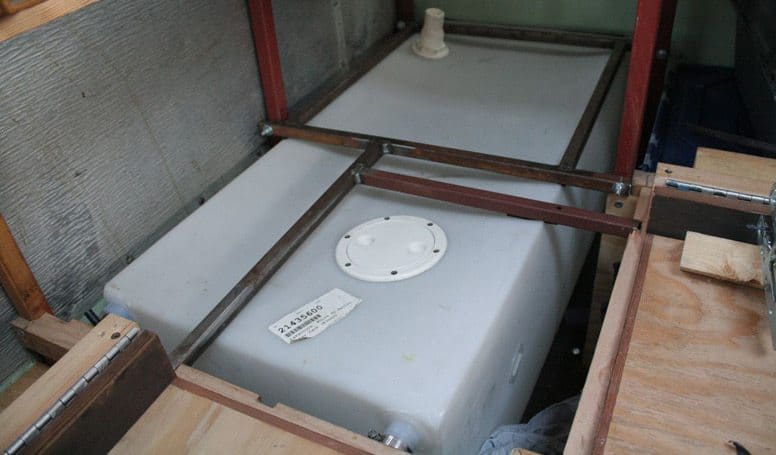
Along with power, finding drinking water is high on the list of priorities for boondockers when off-road and off-grid.
You’ll want to have an extensive system for storing water, like a good water tank, so that you can go a few days without needing to find another source.
Another critical thing to remember is that not all campground water is safe for consumption.
Not all facilities monitor their water supplies, so there’s no guarantee that the available water is free from bacteria and other contaminants.
Along with a good storage system, you’ll also need to invest in a good filtration system. There’s no guarantee on the quality of your water.
There are a few options that will help you make sure your water is safe to use. Water purification tablets are one of them.
You’ll also want to keep your freshwater tanks sanitized regularly to prevent bacteria build-up in your tank.
Build in a couple of filtration systems: one for all of your water, and another one for what you drink.
Having these two systems will give you an extra step in making sure your water is safe and sanitized.
Before loading up on water, you’ll want to make sure that you aren’t infringing on whoever has water rights.
If you’re on public land like an RV park, chances are good that the water is okay to use. But if you venture into private property during your free camping trip, you could get into big trouble for taking someone else’s water.
Conserved Resources
Since everything has to fit in your RV, you’ll need to work to conserve all of your resources.
You can only fit so much water in each of your storage tanks, and your batteries can only output so much electricity.
Figure out what you need each day and check to make sure you don’t go over that amount. Check each of your devices for how much water or electricity they need and put that into your daily budget.
Waste Disposal
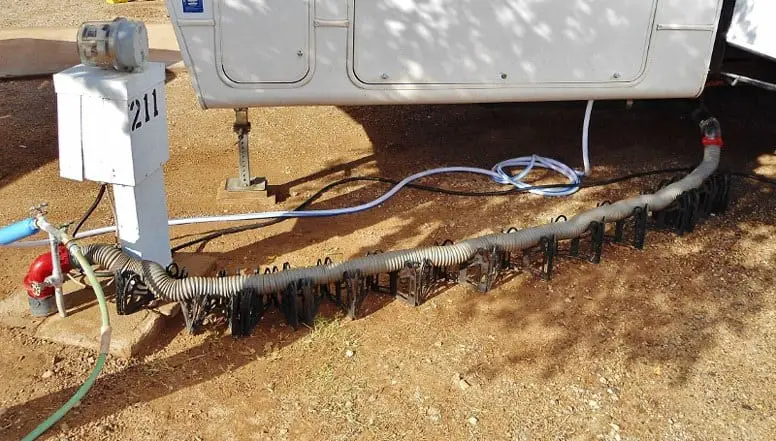
One of the less pretty sides of living in an RV is disposing of your waste.
However, learning how to dump your waste tanks and clean them out in a safe way is vital to living off the grid.
There aren’t any ways to dispose of your waste out in the boonies, so you’ll have to find RV dump stations nearby or dump it to your own septic tank.
Above all, you’ll want to ensure that you’re safe from pathogens during the dumping process. Use protective gloves at a bare minimum and be careful of what you touch to prevent spreading bacteria.
You’ll want to consider connecting a clear plastic elbow to your sewer hose so you know exactly where you are in the dumping process.
It isn’t a pretty picture, but it’s the only way to know when your holding tanks are empty.
Communication Options
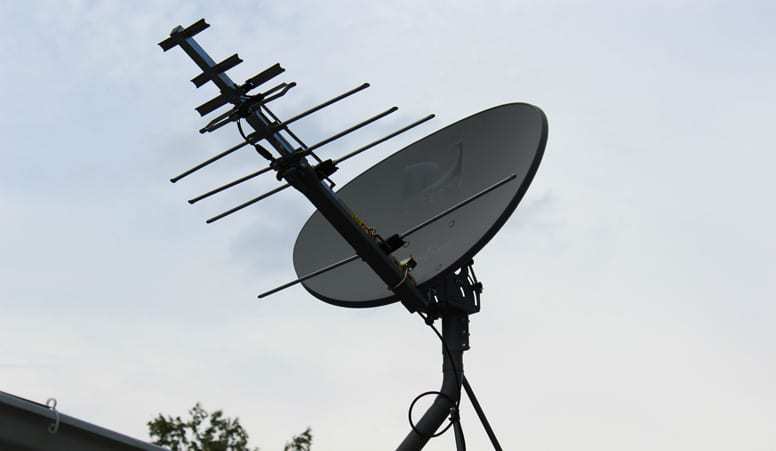
Not everyone wants to stay connected with family and friends when they are living off-grid.
However, chances are good that there are several people you still need to stay in touch with.
One of the best ways to stay connected is to invest in a mobile WiFi hotspot.
There are several options from any number of cell phone providers like T-Mobile, Verizon, and AT&T. Each of these providers has different plans, so you’ll want to shop around before committing.
You can also rely on cellular data as one of the more mobile options for communication. However, you’ll have to try to make sure you camp in an area that has a signal, or you’ll be out of luck.
Living off the grid in your RV full-time doesn’t have to mean giving up on living well.
As long as you plan ahead of time how you’ll meet your needs, you can actually live quite well wherever you choose.
These tips will help you prepare for a life away from civilization without going back to the stone age.


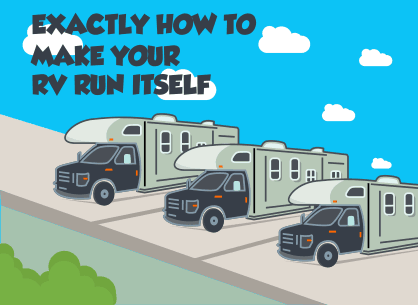
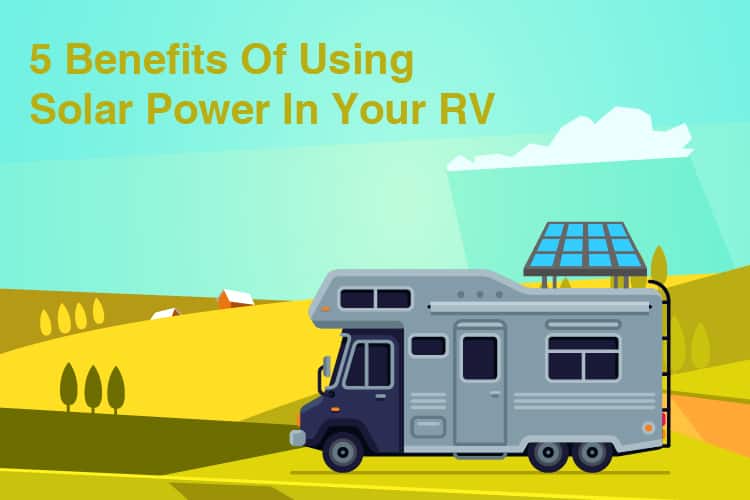
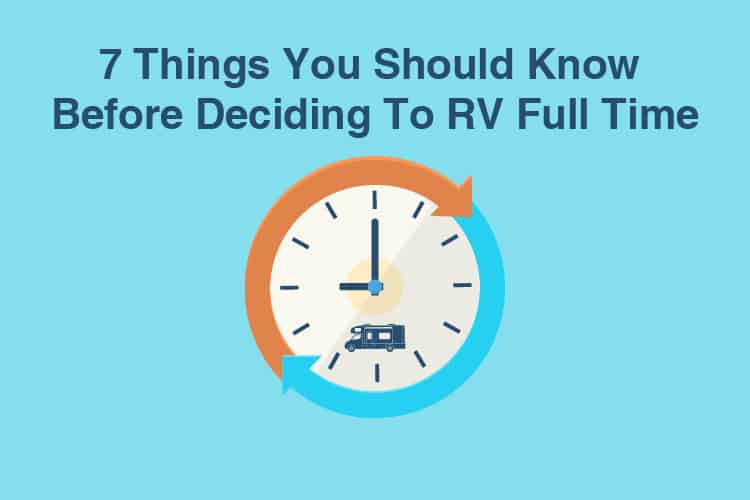
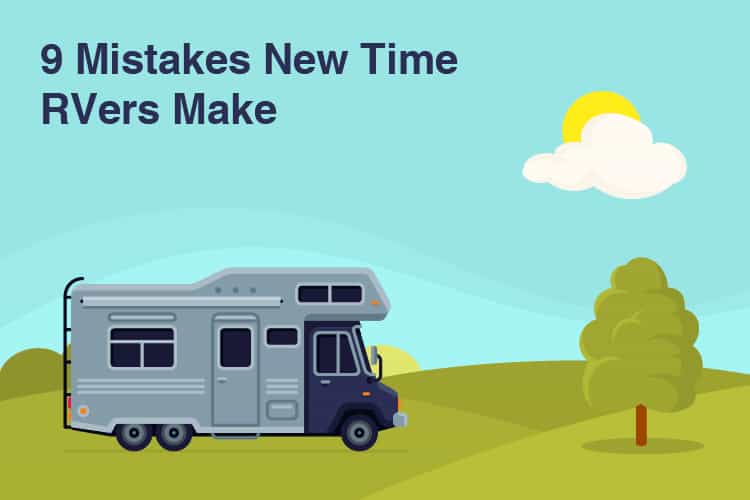
Thanks Mike, we are just starting Rving and trying to learn more. We purchased a used 2003 Pleasure Way wanting to take it up to Alaska this summer from Missouri. Take care.